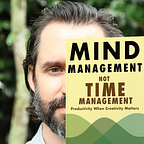Want the mind of Leonardo Da Vinci? Keep a “to-learn” list.
Leonardo Da Vinci mastered a wide variety of topics, and made groundbreaking discoveries along the way.
His fascination with optics helped him perfect the sfumato technique that made his paintings so lifelike.
His fascination with both anatomy and psychology helped him paint the complex smile of the Mona Lisa.
He dreamed up inventions before their time in fields such as metallurgy, flight, and even scuba diving.
How did Leonardo become such an expert in so many fields? And how did he have so many great ideas?
Most people keep a to-do list. It’s full of things they need to do.
Leonardo didn’t just write down things he needed to do. He also wrote down things he wanted to learn. Essentially, he kept a “to-learn” list.
Here’s just a few of the things Leonardo wanted to learn:
- “Get the master of arithmetic to show you how to square a triangle.”
- “Get the measurement of the sun promised me by Maestro Giovanni Francese.”
- “Describe the tongue of a woodpecker.”
Most of us don’t bother to make a list of the things that we want to learn. Industrial society makes us see our own curiosity as an adversary.
So when we get curious about something, we do one of two things: We either suppress the thought and move on to getting “real” work done; or we immediately investigate, then feel bad about ourselves for getting off-task.
Each time you get curious about something, write it down on your to-learn list. Then, set aside time to actually learn those things.
Keeping a to-learn list does three powerful things:
- It keeps you on-task. Curiosity can be a weapon of Resistance. You can indeed get off task because you suddenly get curious about something. By putting it on your to-learn list, you can deflect the distraction, and get back to work, knowing you can revisit later.
- It helps you have great ideas. Great ideas come from combining disparate elements. So, each thing you learn can be combined with something else to make a great idea. The more things you learn about, the more potential combinations you have in your mind.
- It keeps your energy high. Switching immediately from trying to produce work to exploring a topic can be mentally exhausting. This is made worse by the fact that by exploring a topic, you’ve taken yourself farther from the goal of actually producing work. Your to-learn list lets you attack your curiosities later, with a fresh well of energy.
A to-learn list isn’t only valuable for wrangling in that curiosity that sometimes takes you off-task. It’s also valuable for getting you closer to your goals in creative projects.
I’ll often come up with things I want to learn while I’m writing something. Oftentimes that thing is something that will directly contribute to the thing I’m writing. For example, maybe I’m unclear on a historical fact.
Instead of stopping writing, and immediately looking up that item, I put something in brackets, such as [look up items that Leonardo Da Vinci had on his to-learn list].
After my writing session, I go back through what I’ve written, find the brackets, and compile a list of to-learn items.
This does two important things:
- It allows me to stay in my present mental state. If I’m in the middle of writing, I’m in the Generation mental state. I don’t have to switch mental states to go learn about the item. I can stay in the Generation mental state, and keep producing work.
- It gives me actionable tasks to move my project forward. If I’m bored while waiting at the doctor’s office, that time doesn’t go to waste. I look at my to-learn list, and see what piques my interest. I can entertain myself in a productive way by looking up something on my to-learn list.
To reach your creative potential, you need to master your relationship with knowledge. By keeping a to-learn list, you can keep learning new things, without letting your curiosity get the best of you.
Want to 4x your creative productivity? Get my free toolbox »
